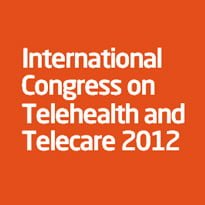GPs divided on telehealth
- 13 March 2012

GP engagement is essential to the successful deployment of telehealth or telecare, but many GPs are still not convinced of the merits of these programmes, experts told an international congress last week.
Speakers involved with the whole systems demonstrator programme told the King’s Fund International Congress on Telehealth and Telecare 2012 that more effort was needed to engage GPs in telehealth projects.
In mid-2010, the Department of Health said the programme had recruited 6,000 patients to the WSD programme from GP practices across Newham, Kent and Cornwall.
However, in November that year eHealth Insider reported that demonstrator sites were having difficulty convincing people to be involved in the project, with just one in ten eligible patients signing up.
Senior research analyst at the Nuffield Trust, Adam Steventon, said there were 3,230 participants from 179 practices in the telehealth part of the study, of whom 1,584 received an intervention. The other patients were involved in the telecare study.
Steventon said it had been a long and “ambitious” recruitment drive. At least 3,000 patients were needed to detect a significant change in admission rates.
Dave Tyas, who implemented the WSD programme in in Cornwall and Isles of Scilly, said clinical engagement was “absolutely paramount” when recruiting patients.
In his region, he found GPs were fairly even split between those who were “really interested”, those who were “not too sure” and those who “really didn’t want to know”.
“You have to be very realistic about that when going out to start the engagement process,” he added.
Tyas said people should not underestimate the time investment needed to get a telehealth or telecare project off the ground. In his area, 1,000 patients had to be contacted and visited over a six month period; which presented a considerable challenge.
Dr Virginia MacNeill, researcher at Barts and the London School of Medicine and Dentistry and Queen Mary University of London, did a qualitative evaluation of the impact of telehealth on the work of frontline health professionals.
Twenty-three community matrons and telehealth monitoring nurses were interviewed in the first year of the study and 24 were in the second group, which also included GPs.
While the matrons and nurses were “generally very positive towards it [telehealth],” she said GP opinion was divided.
One GP felt telehealth increased patient anxiety and the workload for GPs, while another felt that patients were being monitored excessively. Another concern was that GPs were fed so much information about a patient, they faced challenges in deciding what to do about it.
In contrast, nurses said telehealth allowed them to better manage their time, removed some of the work burden for GPs, and cut down on time-consuming trips to patient homes.
“Nurses and GPs shared little common ground,” said Dr MacNeill. She concluded that the “successful adaptation and mainstreaming by front line health professionals will be dependent on the support of the GPs.”
Nottingham City Council assistive technology manager Dave Miles spoke about the organisation’s telecare project, which currently has 2,400 clients. He said a study had shown a 69% drop in GP visits due to the intervention.
The initial WSD reports look at the impact on use of telehealth and telecare on acute services. However, Steventon said an analysis of the impact on primary care “is on the way.”




